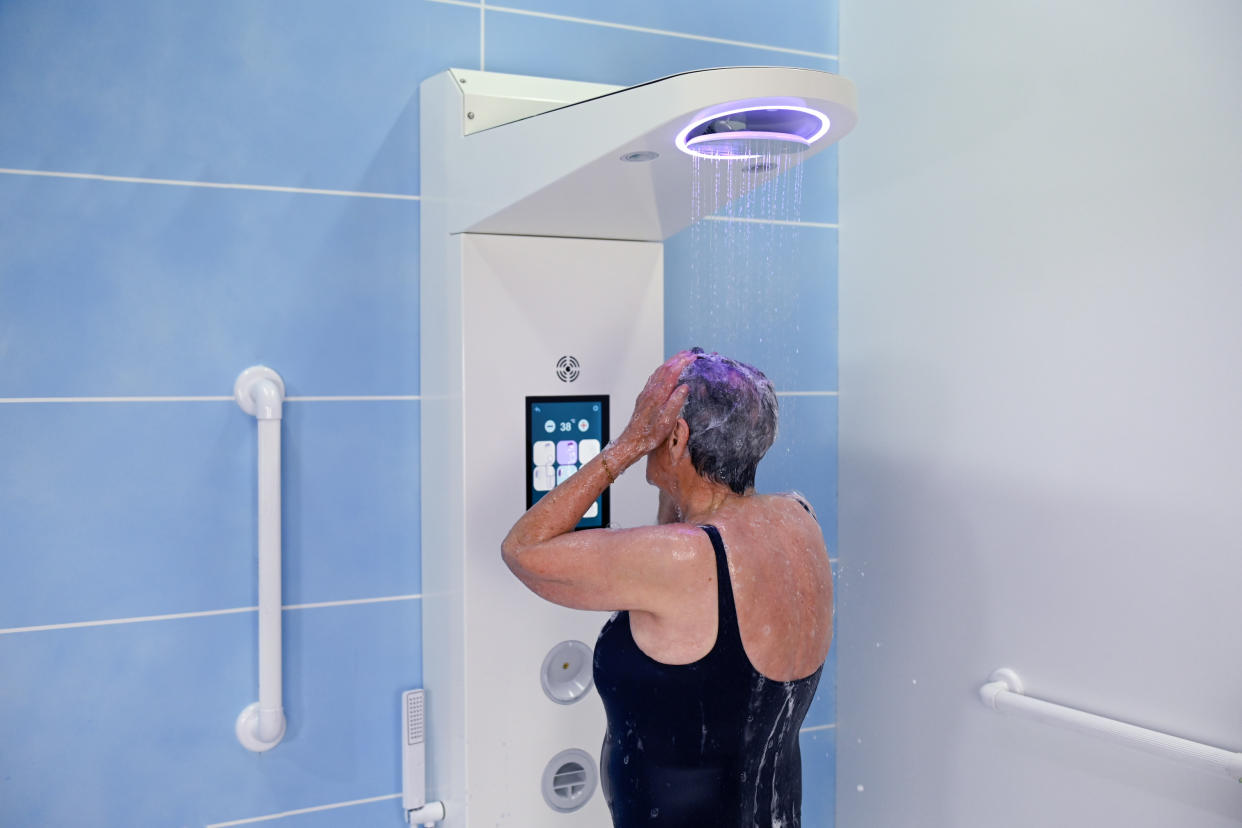Showee, a smart shower startup, shines a light on accessibility

Accessibility, long overlooked by the world's biggest hardware and software developers, has started to find its groove in the world of tech. It's about time: It's estimated that more than one-quarter of all adults in the U.S. report themselves as having disabilities; and in the U.K., in a report last year from the ONS, more than 30% of all people surveyed found services difficult to access. Regulations are finally starting to catch up to enforce better accessibility for all. But in the meantime, some prescient startups are doubling down now.
Catalan startup Showee, which is building smart showers with accessibility in mind, is one such company. A couple of weeks ago, its team was awarded the first prize at the Spanish Red Cross' Humanitarian Technology Awards at 4YFN 2024, Mobile World Congress' startup event.
Showee's shower is designed for people with disabilities who face challenges both physical and intellectual. It has a height-adjustable structure, and also includes a smart touchscreen that guides users through each step, from wetting and lathering to drying.
Here's a video showing how it works:
More than the hardware, Showee won awards and praise for the social impact it's trying to make. By adapting to a user's level of autonomy, it gives them back a lot of privacy without endangering their safety; instead of being a stressful experience, showers can be relaxing. In a testimonial, a user referred to the experience as "liberating." Another testimonial noted that in facilities that lack enough staff or time to care for patients individually, Showee could help nursing assistants give showers more often to patients who want them.
Showee's goal, however, isn't to replace caretakers, whether they are family members or professionals, the company's CIO, Alejandro Castro, told TechCrunch at 4YFN. For example, rather than having to be present during the whole shower, caretakers can control the steps through Showee's mobile app, and only come in when they're needed and notified.
CEO Èric Güell was inspired by the needs of his own family — his mother has a chronic illness and his grandmother was diagnosed with Parkinson's, Castro explained. He started Showee in 2017, and the team soon after received mentoring and support from Universitat Politècnica de Catalunya, also known as BarcelonaTech.
Go-to-market plans
It's not surprising that Showee has been in the works for several years when you consider its focus. Bringing hardware innovations to market is notoriously hard, especially in a niche, but Showee made a couple of calls that helped it enter the market.
First, the company found a manufacturing partner, which provided it with R&D space and helped it build prototypes. Then, the team focused on selling to businesses like hospitals and care facilities. The company's CTO, Eloi Mirambell, admitted that the smart shower's price will have to go down before it has a real chance at B2C.
For now, Showee's showers are being used at retirement homes, hospitals and tutored housing care centers for people with severe autism, and the like. The startup is also looking to sell to hotels with a slightly less customizable shower program that will make it more immediately usable for one-time users.
Accessibility and inclusion aside, Showee has another selling point: water savings. The startup says its shower uses 50% less water than a regular shower. This is a strong point, given that its native Catalonia recently declared a drought emergency. It also offers a monetary benefit, as this issue has driven many municipalities across Spain to raise their water rates.
Since showers represent a large portion of retirement homes' water bills, future savings could help amortize the purchase, Castro said.
Priced at about €5,000, (around $5,420), a Showee shower is definitely going to burn a hole in most homeowners' wallets, but the startup knows what it needs to do to become more affordable. For instance, some hardware components could be replaced with less expensive parts if it starts producing more units, Mirambell explained. The product could also become modular, and the company could make some features optional for users who don't need them.
Just as importantly, Showee is giving buyers the option to pay a monthly subscription for three years instead of buying the shower upfront. It is seeking to raise more funding this year, and is also in talks with distributors who could help it sell the next version of its shower to a wider audience.
This new version is coming to market soon and the model that Showee showed off at MWC is on its way out. In its FAQ, the startup says that all shower units are sold out, but Showee will be available again starting April 2024. The more it sells, the more chances it will have to bring Showee to homes and benefit more people.


